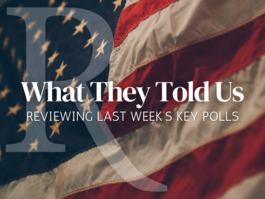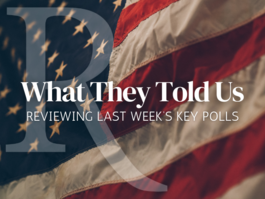Code Words
A Commentary by Susan Estrich
"Hospice is code for six months."
That was the lead, figuratively if not literally, of Leroy Sievers' "My Cancer" blog entry on NPR.com this week. It's been stuck in my head since I first read it Monday morning. How could it not be? Leroy, a longtime journalist and former producer at Nightline, has been fighting a recurrence of colon cancer for the last 18 months. And like thousands of others who read his blog religiously, I feel like I've been fighting it with him. This week he met with the hospice nurse for the first time. Sometime during their meeting, she said those words. She was very nice, he writes. I'm sure. But the words aren't ones you can sugarcoat. They stick in your head. "Code for six months."
"Why do you read that every day?" my teenage son said to me recently, when he saw me staring bleakly at my computer, reading about Leroy's struggles to deal with the pain that followed back surgery for tumors on his spine, and then with a serious staph infection that he picked up while recuperating in the hospital. "Isn't it depressing?" he asked.
Sure. What else is new?
This morning's Drudge Report featured this show-stopping headline: "Study: Middle age is truly depressing."
According to research data collected on 2 million people in 80 countries, happiness follows a U-shaped curve in which people are happy in their 20s and get miserable in their 40s. Contradicting earlier studies that said well-being remained flat throughout life, new research found that in 72 of the 80 countries studied (the only exceptions were reportedly in the developing world), "people slide down a U-shaped level of happiness and mental health throughout their lives." Andrew Oswald from Warwick University in Britain, who co-led the study with David Blanchflower of Dartmouth College, told reporters, "It happens to men and women, to single and married people, to rich and poor, and to those with and without children. Nobody knows why we see this consistency."
I can guess: mortality, illness, career disappointments, dreams that aren't coming true. Your parents get sick and die. Your kids grow up and leave home. Your professional life hits the brick wall of reality as you realize that, no, you aren't going to be president or CEO, or have your own show or that house on the beach.
Reality bites. That's easy.
But there's another side, the real reason I read Leroy's column every day. It's not about figuring out how to die, but, finally, figuring out how to live. It's the generosity of spirit I found when I went back to my alma mater for my 25th college reunion and discovered that even if we didn't look as great as we once did, even if many of us didn't achieve what we dreamed of, personally or professionally, the competitive edge was gone. "Staying alive for 25," I joked with an old roommate of mine, who has fought cancer twice. We were nicer to each other than we had been when we were young. Less judgmental. Hopefully, we are also nicer to ourselves, less harsh in our self-appraisals.
The good news from the research study on middle age is that better days are yet to come. The academics found that if you make it to 70 and you're still physically fit, you're likely to be as happy and mentally healthy as a 20-year-old.
I can't wait. Actually, I can. But it's something to look forward to. In the meantime, I keep thinking about Leroy, who today is trying to find a comfortable chair to sit in. My bad shoulder seems like no big deal by comparison -- because it is.
COPYRIGHT 2008 CREATORS SYNDICATE INC.
See Other Political Commentaries
See Other Commentaries by Susan Estrich
Rasmussen Reports is a media company specializing in the collection, publication and distribution of public opinion information.
We conduct public opinion polls on a variety of topics to inform our audience on events in the news and other topics of interest. To ensure editorial control and independence, we pay for the polls ourselves and generate revenue through the sale of subscriptions, sponsorships, and advertising. Nightly polling on politics, business and lifestyle topics provides the content to update the Rasmussen Reports web site many times each day. If it's in the news, it's in our polls. Additionally, the data drives a daily update newsletter and various media outlets across the country.
Some information, including the Rasmussen Reports daily Presidential Tracking Poll and commentaries are available for free to the general public. Subscriptions are available for $4.95 a month or 34.95 a year that provide subscribers with exclusive access to more than 20 stories per week on upcoming elections, consumer confidence, and issues that affect us all. For those who are really into the numbers, Platinum Members can review demographic crosstabs and a full history of our data.
To learn more about our methodology, click here.



